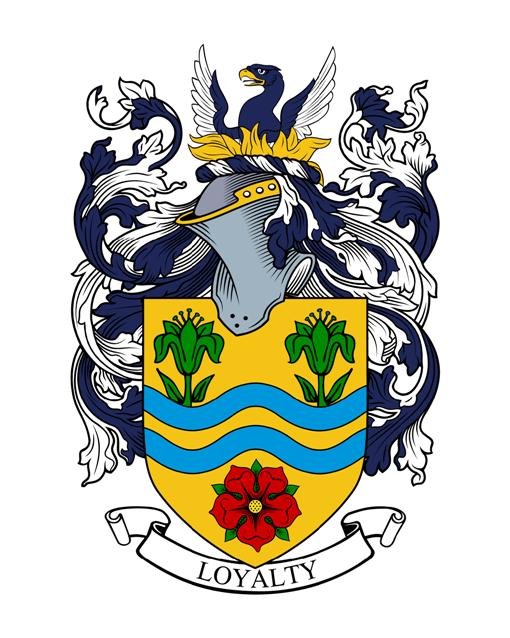
Pupil Premium
What is Pupil Premium?
Pupil Premium is additional funding provided by the government each academic year, for eligible students, to improve educational outcomes.
-
Covid 19 Catch Up Plan
This plan details how we aim to use the extra catch up funding provided to schools.
-
Financial Support For Uniform
Pdf form for Uniform Support
-
Strategy Document
-
Pupil Premium Strategy Review
Pupil Premium 2023
‘Differences are diminishing across a range of subjects and groups, notably for middle-ability disadvantaged pupils. In some other subjects and especially for higher- and lower-ability disadvantaged pupils, the differences have fully diminished.’
Ofsted 2017
Pupil Premium Lead: Mrs Molyneux – Assistant Headteacher
What is Pupil Premium?
Pupil Premium is additional funding provided by the government each academic year, for eligible students, to improve educational outcomes.
Who is eligible for the PPG?
Students are eligible for the Pupil Premium Grant if they:
· are registered for free school means (FSM) or are known to have been eligible for FSM at any time in the past six years.
· are a looked after child (CLA).
· have been previously looked after and are either adopted, under a special guardianship (SGO) or under a child arrangements order or residency order.
· have parents in the armed forces and are therefore classed as service children.
The PPG Rates for 2022-23 are:
Category
PPG amount per student
FSM and Ever 6
£985
Looked after by the local authority
£2410
Adopted from care or have left care
£2410
*please note, for CLA pupils, the PPG is held centrally by the local authority virtual school headteacher.
Which students qualify for FSM?
There has been new guidance published in March 2018 to reflect the introduction of Universal Credit. You should still apply for FSM if your child would rather have packed lunches, in order for them to access the PPG.
Your child may be able to get free school meals if you get any of the following:
Universal Credit with a household income of less than £7,400 a year (after tax and not including any benefits you get)
Income-Based Jobseekers' Allowance
Income-Related Employment and Support Allowance
Child Tax Credit, not entitled to Working Tax Credit and household income less than £16,190
Support under part VI of the Immigration and Asylum Act 1999
Guarantee element of State Pension Credit
Income Support
Working Tax Credit 'run on' – the payment you receive for a further four weeks after you finish work
If your child is currently eligible for free school meals, that eligibility will be protected until Universal Credit is introduced (expected March 2022) even if your circumstances change. If your child is still in education on this date, they will be eligible until they finish the phase of schooling they are in.
How do I apply for Free School Meals?
Applications in Lancashire for Free School Meals can be made online by following this link:
https://lancashire-self.achieveservice.com/service/Free_school_meals_and_pupil_premium
Applications in Bolton for Free School Meals can be made online by following this link:
https://selfserve.bolton.gov.uk/citizenportal/form.aspx?form=HB_FSM
Once you have registered:
Lancashire County Council will confirm whether you are eligible by email. If you do not get an email within 5 working days, contact your area education office. Remember to also check your spam or junk email folder. If you are eligible, the LCC will let us know that your child can have free school meals.
How is PPG funding used at Albany?
The PPG is not used to pay for school meals. The money we receive per student (please see PPG Rates table) is used by school to support and improve attainment.
The following information is taken from the DfE website: https://www.gov.uk/government/publications/pupil-premium/pupil-premium
School leaders are best placed to assess their pupils’ needs and use the funding to improve attainment, drawing on evidence of effective practice. Evidence suggests that pupil premium spending is most effective when schools use a tiered approach, targeting spending across 3 areas, with a particular focus on teaching.
1. Teaching
Investing in high-quality teaching, for example:
· training and professional development for teachers
· recruitment and retention
· support for teachers early in their careers
2. Targeted academic support
Additional support for some pupils focussed on their specific needs, for example:
· one-to-one tuition
· small group tuition
· speech and language therapy
3. Wider approaches
Support for non-academic issues that impact success in school, such as attendance, behaviour and social and emotional challenges. For example:
· school breakfast clubs
· counselling to support emotional health and wellbeing
· help with the cost of educational trips or visits

“‘Differences are diminishing across a range of subjects and groups, notably for middle-ability disadvantaged pupils. In some other subjects and especially for higher- and lower-ability disadvantaged pupils, the differences have fully diminished.”
— Ofsted
